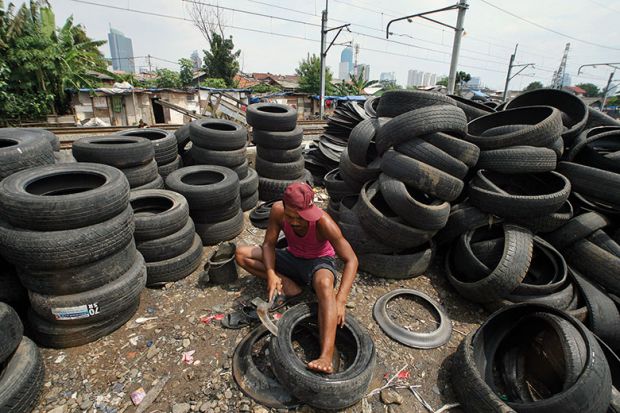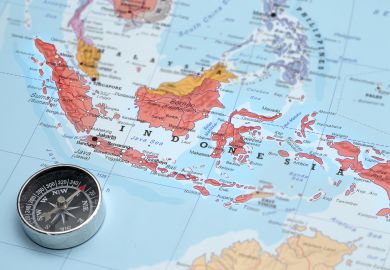A Monash University branch campus in Indonesia would be a research mecca rather than an insurance strategy against a downturn in Australia’s lucrative onshore foreign enrolments, the Melbourne institution has insisted.
Vice-chancellor Margaret Gardner confirmed that Monash was considering an Indonesian outpost as a “next step” in its dealings with the archipelago, following the 4 March signing of a free trade agreement between the two countries.
But Professor Gardner said that the campus’ core business would be “engagement at the postgraduate level” rather than high volumes of undergraduate enrolments, with the focus not on commercial gain but on research, reputation and relationships.
“This is not about the scale of the campus or the student number,” she told Times Higher Education. “It’s about the quality of the engagement – engagement that is about research, postgraduate education and our contribution to mutual interests in how we might build better relationships.”
While the free trade agreement offers considerably more to technical colleges than to universities, it could help produce more transparent and predictable conditions generally for Australian educational operations in Indonesia – partly because it obliges Indonesia not to reverse future educational reforms.
Arguably a much more significant development for Australian universities occurred last October, when Indonesian education minister Mohamad Nasir promulgated a 2012 law allowing overseas universities to operate in his country.
The law opens the door to higher education institutions ranked in the world top 200, with the universities of Melbourne and Queensland last year named among the foreign institutions reportedly in active talks with the Indonesian government.
Neither of these universities is seriously contemplating an Indonesian base, however, although the University of Western Australia reportedly has the idea under consideration. Monash, which opened a Jakarta office in 2016, seems the most likely contender.
Professor Gardner said Monash also had two “very big” research projects in the country – one aimed at eliminating mosquito-borne diseases such as dengue and chikungunya, backed by a coalition of funders headed by the Bill & Melinda Gates Foundation; the other a Wellcome Trust-supported initiative to revitalise 12 urban slums.
Monash also hosts the Australia-Indonesia Centre, a collaboration of 11 universities funded by both country’s governments, and Professor Gardner said it attracted “large numbers” of the 10,000-odd Indonesian higher education students in Australia.
“The free trade agreement is an opportunity to consider whether we could have a more substantial presence,” Professor Gardner said. “It’s a very important practical but also symbolic statement about what should happen.
“[Indonesia] is our largest, most significant neighbour and we should be very close. We need to be closer.”
She said Australia’s links with the archipelago, which has the world’s fourth-largest population, had weakened in recent decades. Monash already has joint research campuses in China and India and the first foreign university campus in Malaysia.
“They’re not outposts delivering on some small part of the university’s goals. They’re part of our commitment to our education and research. They’re what makes Monash distinctive – a top-100 research university that is able to deliver education and research in countries outside its home base, at scale.”
Register to continue
Why register?
- Registration is free and only takes a moment
- Once registered, you can read 3 articles a month
- Sign up for our newsletter
Subscribe
Or subscribe for unlimited access to:
- Unlimited access to news, views, insights & reviews
- Digital editions
- Digital access to THE’s university and college rankings analysis
Already registered or a current subscriber?








